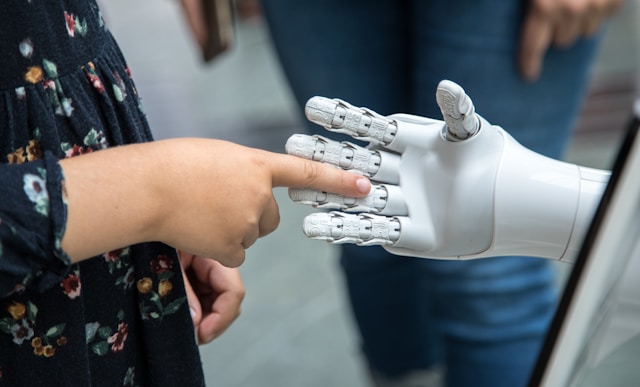info@sadi.co.ke
+254727368241
Artificial Intelligence (AI) is no longer just a futuristic concept; it has quietly become part of our daily routines. From personalized recommendations on streaming platforms to smart assistants on our phones, AI is shaping the way we live, work, and interact.
AI in Communication
Chatbots and voice assistants like Siri, Alexa, and Google Assistant have changed how people access information and perform tasks. With natural language processing, these tools can understand questions, schedule reminders, and even control smart home devices.
AI in Healthcare
AI-driven systems are being used to diagnose diseases, analyze medical images, and suggest treatment options with greater accuracy. Wearable devices powered by AI also help track heart rate, sleep patterns, and physical activity, making healthcare more preventive than reactive.
AI in Transportation
Self-driving cars and navigation systems rely on AI to make travel safer and more efficient. Ride-hailing apps also use AI to predict demand, optimize routes, and reduce waiting times for users.
AI in Entertainment and Shopping
Recommendation systems on platforms like Netflix, YouTube, or e-commerce websites use AI algorithms to study preferences and suggest content or products. This makes browsing more personalized but also shows how deeply AI is embedded in everyday decisions.
AI in the Workplace
Automation tools powered by AI are simplifying repetitive tasks such as data entry and scheduling. In addition, AI-driven analytics help businesses understand customer behavior, improve services, and boost productivity.
Conclusion
AI is everywhere, from the way we communicate to the way we shop and travel. While it continues to advance, its role in everyday life will only grow stronger. Understanding and adapting to these changes can help individuals and businesses use AI responsibly and effectively.
 August 21, 2025 - BY Admin
August 21, 2025 - BY Admin